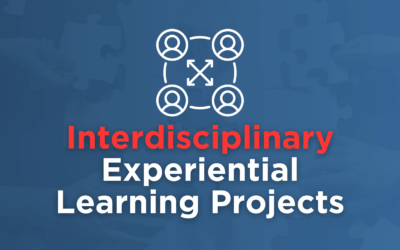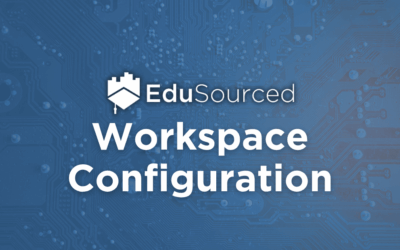When Joan Petros joined Northern Illinois University’s Experiential Learning Center in 2005, it was just starting to redefine itself as a cross-functional program that connected IT faculty and students with the College of Business. Ten years later, the Experiential Learning Center (ELC) has become a cutting-edge program as project-based learning has begun gaining interest across college campuses nationwide.
We sat down with Joan to discuss the changing landscape of higher education, the appeal of project-based learning, and what’s next for the experiential community.
EDUSOURCED:First, tell us about your experiential program. Why was the Experiential Learning Center established to begin with?
JOAN PETROS: Our program began in 1998 and initially was purely focused on technology. In 2004, it became more cross-functional in nature and the name was changed to Experiential Learning Center. When Dennis Barsema donated $25 million to the College of Business for a new building that opened in 2003, he envisioned a suite set up like a consulting center. Now, students can feel like they are stepping out of the classroom into the real world while they are still in school.
ES: Programs like the ELC were still uncommon in 2004, but experiential learning has taken off in the past couple of years. Why do you think it is becoming popular now as opposed to 5-10 years ago?
JP: Today, there is a greater focus on the cost of higher education and the return on investment. Students who participate in experiential programs can demonstrate to employers that they have the skills to succeed in the workplace.
ES: That must be a relief to students and parents alike. What first reactions do they have when they learn about the program?
JP: When parents tour the ELC, a lot of them ask, “Where was this program when I was in college?” They understand why it can lead to jobs, so they love the idea. As for students, I think they mostly like the idea of the physical space we have and the fact that it looks so different than a regular classroom. By the time students are sophomores or juniors, they have been exposed to guest lecturers and want to do work for a real organization while still in school. That’s something they can get through working with the ELC. I often have students tell me they learned about the ELC while visiting campus during an open house and that, in the end, they decided to attend NIU in order to participate in the program.
ES: How does NIU plan to grow the ELC over the next few years?
JP: NIU is working to expand experiential experiences for students across the university at all levels. There is also an increased effort to involve alumni in general. The president is a strong advocate of experiential learning, so I would love to see the ELC grow to become a university program versus a business school program.
ES: What sorts of challenges stand in the way of that growth plan?
JP: We currently do four to six projects per semester and, with the current resources, I am reluctant to take on more than six projects. Teams need a place to store information and share updates. In the past, they tended to use group-text as a communication tool and Google Docs or Drop Box as a place to store documents, but I didn’t necessarily have access. That’s why project repositories like EduSourced are great to have.
ES: How do you collaborate with other members of the experiential community?
JP: Every project is different, so we are constantly learning from sponsors, students, and faculty. It would be beneficial if we could share our findings and the trends we are seeing collectively. New technology, webinars, and frameworks would help, too.
Joan recently took part in our inaugural Experiential Learning Webinar, a collaboration between the University of Illinois, Brigham Young University, the Purdue University Krannert School of Management, and EduSourced.



